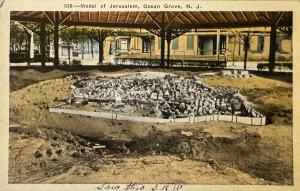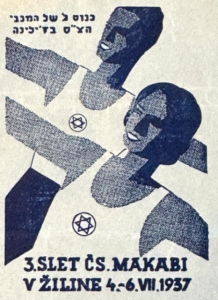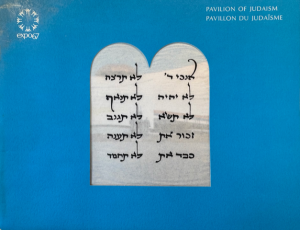Israel Zangwill (1864-1926) was an English-born novelist, playwright and Zionist, who was known as the “Jewish Dickens” for how he documented life in London’s East End. The immigrant experience in England and America was the theme of works such as Children of the Ghetto and Ghetto Tragedies.
His 1908 play The Melting Pot is the origin of the term that describes how American identity is established by blending the identities of its many immigrant cultures, in contrast to Canada which tends to consider our identity as a mosaic where distinct cultural differences are preserved.
Zangwill was a supporter of Theodor Herzl and attended the first Zionist Congress gatherings. After Herzl’s death and the Seventh Zionist Congress in 1905 where the delegates rejected the British offer for a Jewish homeland in what was then called Uganda (which is Kenya today). Zangwill concluded that the stated goal of Zionism, a Jewish state in Palestine, would not come quickly enough to save the Jews of Europe. He founded the Jewish Territorial Organization (often called ITO) whose goal was to create a homeland, an ITOland, for the Jewish people wherever possible.
The search for an ITOland covered East Africa, Australia, Mexico and even Canada. The American Israelite newspaper reported on Sept. 6, 1906: “The Canadian government has informed Zangwill, who proposed to establish a Jewish colony in Canada, that any project of the kind is entirely out of the question so far as Canada is concerned.”
Zangwill and the ITO’s greatest achievement was the “Galveston Movement” which brought 10,000 immigrants to the United States through the port in Galveston, Texas, between 1907 and 1914. Zangwill and the Galveston Movement are the subject of the recent book, Melting Pot by Rachel Cockerell. The story is told entirely through primary source materials, including newspaper articles, diaries and interviews.
In addition to Zangwill, the book discusses Herzl and Ze’ev Jabotinsky—something for everyone!







